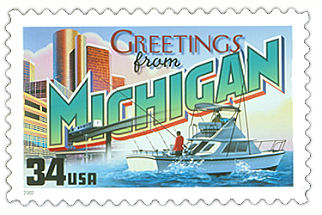The rivers that serve as the lifeblood of the Great Lakes abound with organic waste compounds, including pollutants from car exhaust, factory smokestacks and tar, insecticides and herbicides and detergent ingredients. And three Michigan rivers are among the worst of the worst for the compounds: the Clinton and Rouge rivers in Southeast Michigan and the St. Joseph in Southwest Michigan, according to a recently published study by the U.S. Geological Survey — the most comprehensive look yet at organic waste compounds in Great Lakes tributaries. The Clinton, Rouge and St. Joseph rivers top the list with the highest number of organic waste compounds found in water sampling USGS conducted throughout the Great Lakes basin in five states over four years, from 2010 to 2013. The amount of the pollutants also was disturbing — both the Clinton and Rouge rivers had five organic waste compounds related to incomplete fossil fuel burning, such as car exhaust and coal-fired power plants, that were 10 times higher than water-quality benchmarks.
"The Rouge and the Clinton were among the worst sites overall, almost across the board, for what we were looking at," said Austin Baldwin, a USGS hydrologist who led the tributaries study. The compounds are known to disrupt the endocrine systems — which produce hormones — of fish and other organisms, Baldwin said. They can act like the hormone estrogen and lead to reproductive disruption, including causing male fish to turn into females, he said. And concentrations of the compounds at levels high enough to cause such changes were found not only in the Clinton, Rouge and St. Joseph rivers in Michigan, but also the Au Sable, Saginaw, Raisin and Ontonagon, he said.
"Some of the samples we collected in the rivers had concentrations of these estrogenic chemicals comparable to concentrations in effluent" from wastewater treatment plants, Baldwin said.
Even low levels of the compounds, affecting the smallest shrimp-like invertebrate creatures in the water, cause a ripple effect up the aquatic food chain and could ultimately impact Michigan's prized, multibillion-dollar fishing tourism industry.
Source: Detroit Free Press, July 30, 2016
http://www.freep.com/story/news/local/michigan/2016/07/30/study-michiga…

- Login om te reageren
